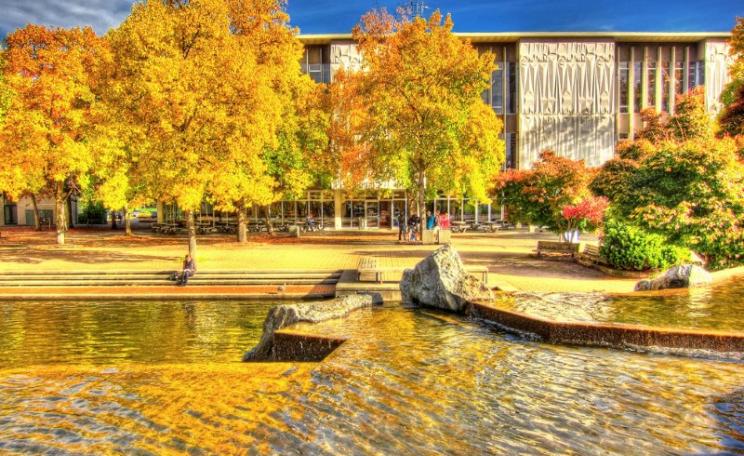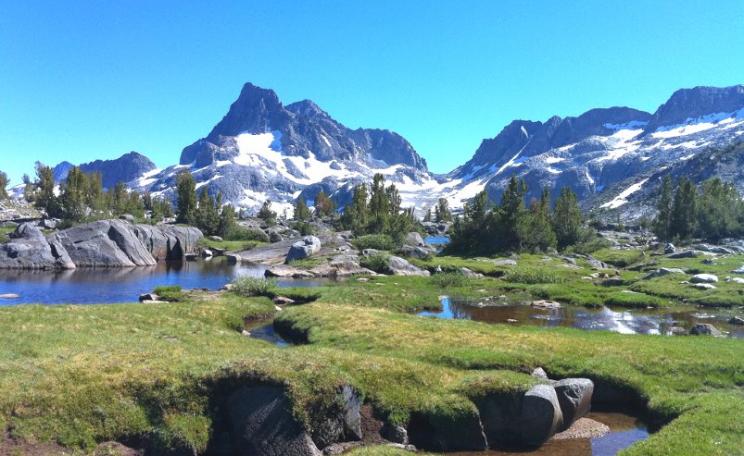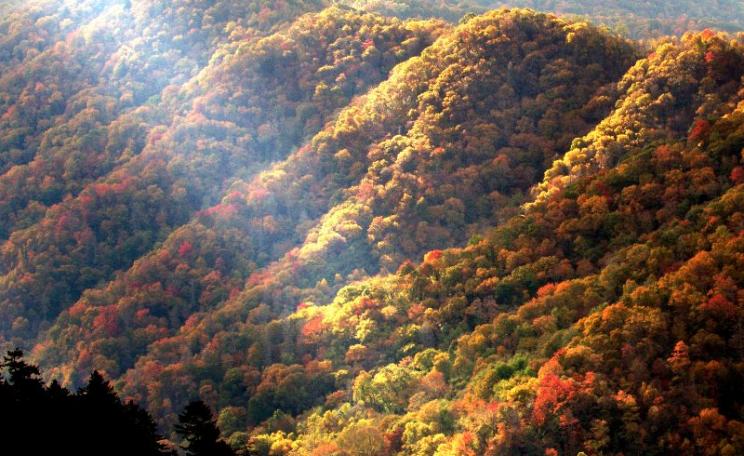Collaborative management intrinsically promotes the redistribution of power. Commons governance allows us all to champion ideas that benefit people, our social systems and the environment.
The Everglades are among the last sub-tropical wilderness areas in the United States.
Their Floridian air is thick with humidity, but a cool breeze is commonly felt from both the fresh and saltwater systems that spread throughout the landscape. Open prairies provide relief from the dangers of the swamp.
A mosaic of forest, from pinelands nourished by ancient limestone, to tropical hardwoods, coral reef communities and mangroves, supports an incredible array of wildlife.
These unique systems are habitat for numerous endemics including aquatic birds, mammals, reptiles and amphibians - of which many are endangered or threatened.
Hard to think of a landscape quite like the fragile Everglades - but it is politics that brought US President Barack Obama to such splendor on Earth Day. In the backyard of Marco Rubio and Jeb Bush, both GOP presidential contenders (with checkered environmental legacies), Obama talked of climate change impacts on the imperiled wetland community.
He went on to highlight the 100 year anniversary of the Park Service, coming up in 2016, and a new report that notes National Parks store 14 million tons of carbon each year. Point after point was made for conservation.
Hard for me to argue with his rhetoric. Easy for me to recognize his insincerity.
What Obama did not mention ...
Obama did not mention his administrations new push for offshore drilling, limited funding for national parks, the leasing of natural lands to oil and gas companies, or the permitting of mountaintop removal coal mines.
No commander-in-chief will ever mention their extensive, carbon burning, wars. No executive will talk poorly of the state economic system, nor their policies that encourage the growth machine.
National monuments are good, and I have a fond place in my heart for the national parks. But state archism trends towards violence and the mass consumption of resources. This will not change.
We see the failures of state decisions everywhere. From sprawl and drought in the Southwest, industrial disasters in the Mid West, Cancer Alley along our coasts, the destruction of Appalachian mountain ecosystems and so much more. Natural resources are terribly mismanaged. As a result of state decree, and the rise of hegemonic corporations, we are in the midst of a 6th great extinction. The age of the Anthropocene is upon us.
If we are to be serious about climate, conservation and environmental health, perhaps we should investigate best management practices. Perhaps we should explore our individualist spirit.
Time for a new social order
A radically different social order is necessary if we are to permit a life worth living to our posterity. Imagine a world without archism, a place where every human being is free to bring their inclined labor to one another in mutual account. Imagine such liberty.
Decisions regarding climate, thus how to allocate resources across social / economic systems, should not belong to a few decision makers. Furthermore, the populace should not be held hostage by internal political bickering among Republicans and Democrats in the halls of power.
Collaborative management intrinsically promotes the redistribution of power. Commons governance allows us all to champion ideas that benefit people, our social systems and the environment.
These decisions should be made democratically, in common, where power is equally distributed among all stakeholders. Thanks to the work of famed economist Elinor Ostrom, we know that governance of this type is not only possible, but incredibly successful.
Human dimensions are growing ever more important to the resource management process, as power redistribution from resource agencies to the communities they serve is already a growing trend.
Human dimension considerations also provide a forum for honest communication among professionals, stakeholders and community members who will be affected by management policies. These approaches work to promote collaboration between agencies and people, thus promoting democratic decision-making.
Engaging the citizenry while calling for public discourse and reasoned debate brings consensus and legitimacy to management decisions. The public process also has the power to either expose or avoid agency capture, insuring people's needs are being reflected, not the interests of powerful institutions or industry.
Adaptive local governance, not top-down control
Such adaptive collaboration is democratic. It is a bottom up approach to natural resource conflict resolution, as opposed to the traditional top down, bureaucratic approach.
Those practicing natural resource management in the 21st century have their work cut out for them. Human civilization is approaching a point in Earth's history where all of humanity will be forced to deal with anthropogenic impacts to the biosphere.
We now live in a time where we can physically see and experience the impact of our ecological footprint. There is a true human dominance of all global systems. This dominance is now effecting a range of topics from human health to the politics we address. As we further encroach on natural systems, the transmission of new diseases to humans from animals and insects is growing rapidly.
A hotbed political issue in the United States right now is immigration reform. Studies suggest that a number of Mexican farmers may start moving north due to the effects of climate change to their crop yields. There are many more examples of the connection between human impacts to the biosphere and current affairs.
The question is, how should human civilization address these issues?
Perhaps the most important attribute of adaptive governance is the insistent inclusiveness and diversity of ideas. This allows practitioners to move forward with the best plans possible. This diversity, however, has very large implications for traditional leadership.
Reclaiming our commons
Collaborative management intrinsically promotes the redistribution of power. Commons governance allows us all to champion ideas that benefit people, our social systems and the environment.
With such polycentric decision-making, human beings are not subject to the wishes of the state, but instead to community needs. Here, resources are distributed by need as opposed for the sake of growth. Let's reclaim the power that is rightly ours and build a society worthy of our future generations.
States have divided landscapes not based on the science of resource management, geology or ecology but rather for political purposes. States have drawn fictional lines in the soil for the sole purpose of claiming landscapes as their property - hence their landscapes to exploit. In a free society there would still be boundaries, but they would not be political.
The free society would rather analyze landscapes in terms of watersheds, ecosystems, capacity for food production, resources available for trade, cultural heritage and so on. Without political boundaries, but by natural boundaries, people will be more aware of their natural surroundings, the resources available to them, and community relationship with the environment will be much more understood.
In this society we would be liberated from centralized institutions that rob us of this experience and deny us the chance to mix our productive labor with what should be 'our' land.
In short, we would get our cultural heritage back. As Deep Ecologist Gary Snyder ultimately argues in The Practice of the Wild, if people move beyond political institutions and see our jurisdictions as innate and natural landscapes then political action would seek to protect more of that natural landscape.
Caring for our neighbourhood ecosystems
As we are proud of our communities and neighborhoods, as well as our individual labor, we will develop a collective interest to protect our natural landscapes - our new connection with culture would demand it. We would seek to take care of water, plants, animals and all of our resources because they too would be part of our neighborhood - this is a new way to organize politically.
Invite the forest back into society, stop sprawling into the hinterlands, focus on energy production (not consumption) and craft resilient, sustainable neighborhoods.
This is the core of the environmental movement: protect place connections, protect watersheds, landscapes and seascapes, preserve biodiversity and move beyond the destruction of these ecological communities.
Without collective action, we remain at the mercy of systems of power and domination. Wild places, like Florida's River of Grass, are doomed. Without wild lands, we are doomed as well.
Grant A. Mincy is a senior fellow at the Center for a Stateless Society, where he holds the Elinor Ostrom Chair in Environmental Studies and Commons Governance. In addition, Mincy is an associate editor of the Molinari Review and an Energy & Environment Advisory Council Member for the Our America Initiative. He earned his Masters degree in Earth and Planetary Science from the University of Tennessee in the summer of 2012. He lives in Knoxville, Tennessee where he teaches both Biology and Geology at area colleges. Feel free to contact him at grant.mincy@c4ss.org
Website: appalachianson.wordpress.com/.







